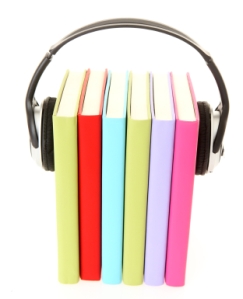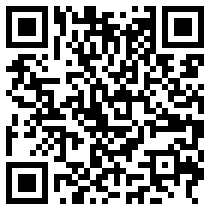Keep The Heid is a campaign encouraging people to read for six minutes on the eleventh of May. It’s been proven by MindLab that just six minutes reading every day can reduce stress and improve sleep – more so even than going for a walk or holding a steaming cup of tea.
I guess it’s not a surprise; reading takes you away from your anxieties, and for those six minutes you can be immersed in a world completely other than your own. Researchers are keen to emphasise that reading any book for pleasure will have the same effect.
Below our Library Advisors, Supervisors and Development Leaders share their #KeepTheHeid pledges, telling us which books they plan to immerse themselves in this week.
Bronwen, Art and Design and Music Library Development Leader, has pledged to read All Among the Barley by Melissa Harrison as part of #KeeptheHeid
The book I’m pledging to read is ‘All Among the Barley’ by Melissa Harrison which I’m reading just now with my book group.
I’m taking it slowly which is a deliberate choice to relish the book’s wonderfully descriptive portrayal of rural England in the autumn of 1933. Told through the character of Edie, then a teenager growing up on a family farm and with the Great War still casting a shadow over everyone’s lives, themes of class, folklore, changing rural traditions and patriarchy are explored. I’ll be reading my six minutes on the bus to work, I find it helps to distract me from thinking about the challenges of the day ahead and to bring me some stillness and peace despite the busyness around me.
All Among the Barley is available to borrow both as hardback, large print, talking book and ebook.
Joanna, Library Advisor in Art and Design and Music Libraries has chosen Children of Our Era, a poem by Wislawa Szymborska as her six minute read
I have chosen this poem because of its ideas about society, citizenship, and peoples’ and communities’ involvement in political subjects. Some people told me: ‘I’m not voting. I’m not interested in politics.’ Which is obviously a wrong decision. There is a saying: ‘you maybe have no interest in politics, but the politics easily becomes interested in you’.
Miracle Fair by Wislawa Szymborska is available to borrow and we also have several other collections of her poetry.
Natasha, Art and Design and Music Library Supervisor is reading Last Order at the Liars’ Bar: The Story of the Beautiful South
I came across this book whilst searching for items in our Music Library annexe. The Beautiful South have long been favourites of mine, so I was intrigued to find out a little more behind the catchy melodies and Paul Heaton’s sharp lyrics. The band’s music has been very beneficial to my mental health over the years so I thought it would be fitting to read this book for my pledge.
Last Order at the Liars’ Bar is available to reserve from the Central Music Store.
Ania, Library Advisor in Central Lending and Children’s Library has chosen to read Akin by Emma Donoghue
‘Akin’ is a tale of love, loss and family, in which a retired New York professor’s life is thrown into chaos when he takes his great-nephew to the French Riviera, in hopes of uncovering his own mother’s wartime secrets.
I very much enjoy reading it, taking part in their journey through beautiful Nice, its restaurants, cafes, galleries, watching them clash, fight but also learn from each other. ‘Akin’ is a quietly moving novel that shows us how little we know one another, but how little, perhaps, we need to know in order to care.
It has two things I love in a novel: a beautiful city you can imagine being in with the main characters and a complicated, deep but also fascinating relation between people who are so different from one another and yet manage to gain some mutual trust and respect towards each other.
Akin is available in paperback, hardback, large print, talking book on CD and audiobook.
Zoe, Library Advisor at Central Lending and Children’s is reading The Young Team by Graeme Armstrong
I’m reading ‘The Young Team’ by Graeme Armstrong, a book published in 2020 which tells the candid tale of a young man and his pals growing up in the housing schemes of Airdrie. I’m enjoying this book so much and can’t wait to find out what the wise and brave protagonist will do next. This is Armstrong’s first book, yet he writes with such unwavering confidence – definitely one to watch.
The Young Team is available in Edinburgh Libraries as hardback, paperback and talking book on CD.
Jeanette, Central Lending and Children’s Library Adviser is reading Thin Places by Kerri Ni Dochartaigh which was shortlisted for The Wainwright Prize
Getting out into nature, no matter how bad I feel, almost always lifts my spirits, and I am curious about the impact of nature on others. ‘Thin Places’ by Kerri Ni Dochartaigh is a mix of memoir, history and nature writing. Born in Derry, Ireland at the height of the Troubles, the author’s childhood was shocking and traumatic. Her account of how nature; moths, foxes, birds and ‘thin places’, contribute to her gradual recovery is magical. Nature is healing but so is reading, and this book has had me absorbed from the first page. Highly recommended.
Thin Places is available to reserve in hardback or paper back.
Emily, Library Advisor in Central Lending and Children’s has pledged to read Kazuo Ishiguro’s Klara and the Sun for #KeeptheHeid
For my pledged six minutes of reading for Keep the Heid, I will be reading ‘Klara and the Sun’ by Kazuo Ishiguro. This book is classed as a dystopian science fiction novel, and explores themes of faith, rationality, and love through the eyes of artificial intelligence. I’ve chosen to read this book as part of my pledge because I’ve only heard good reviews for it since it was published in 2021, and I have high hopes that it will challenge my thoughts and views on the themes seen throughout.
Klara and the Sun is available to borrow as hardback, paperback, talking book on CD and ebook.
Hope, Library Advisor in Central Lending and Children’s is reading Once Upon a River by Diane Setterfield
The Swan Inn is known for storytelling. People come from miles around to hear tales told by Joe Bliss, the innkeeper’s husband. One winter night (the longest of the year) just as Joe says, ‘Once Upon a Time…’, an unknown and injured man stumbles through the door holding a child in his arms. The man collapses. The child is drowned, or is she?
It is a story of stories, of maybe ghosts and longing, of the river which feeds the land and its people, yet can take them as well. I’m loving this strange and twisting novel.
Once Upon a River is available to borrow as paperback, hardback, ebook and audiobook.
Doris, Library Advisor at Central Lending and Children’s, is reading Taste by Stanley Tucci
Having recently finished Ruth Ozeki’s second novel The Book of Form and Emptiness, I was in the mood for something lighter.
I immediately picked up Stanley Tucci’s new book Taste. I’ve been avidly watching his TV programme and was looking forward to tucking into his memoir, which has a similarly reminiscent and urbane style. Something light yet with substance and a book to be savoured.
Taste is available to reserve as a hardback.
Dawn, Library Advisor at Central Lending and Children’s, chooses Edinburgh – Jarrold Short Walks
I was posted to Portobello library during Central’s ‘glow up’ and there found a bountiful book of walks in and around the Edinburgh area and this has lead to some new-to-me areas of the Pentlands. These explorations in the wilderness are crucial to maintaining my mental health which, in truth, like so many of us, has taken a severe bashing over the last two years. If I had to choose one of these it would be Edinburgh – Jarrold Short Walks.
Edinburgh – Jarrold Short Walks is a little yellow paperback, available in four of our libraries
Vesna, Central Lending and Children’s Library Development Leader pledges Burning Questions, Margaret Atwood’s third collection of essays and occasional pieces, covering 2004 – 2021
This choice was the result of practising the art of serendipity: a book voucher gift from a friend with an instruction to let the book chose me! I’ll be reading my six minutes during my lunch break, and if the weather is fair, outside in the park.
I am not sure which piece’s siren call will be the strongest today. Perhaps a call to courage in ‘We Hang by the Thread’ (2016)? Or the wonderfully punctuated, firmly titled piece from 2019 Just.Tell.The.Truth. The most burning question of them all: How to Change the World (2013)? There are tempting pieces about other writers too: Doris Lessing, Alice Munro, Marie Clair-Blais. Whichever piece it is, I know that Atwood’s masterful writing, with generous sprinkle of wicked fun, will bring me back to the joy of reading. I’ll walk back to the library a little wiser, calmer, readier to carry on!
Burning Questions is available to reserve as an audiobook or hardback.
What will you read today to Keep the Heid and Read?
 Did you know that at Edinburgh Libraries we have three different downloadable audiobook services? Want to know why and the reasons you need to check them all?!
Did you know that at Edinburgh Libraries we have three different downloadable audiobook services? Want to know why and the reasons you need to check them all?!










































 Join millions of others around the world in reading a fantastic young adult fantasy novel during the
Join millions of others around the world in reading a fantastic young adult fantasy novel during the 
 Join millions of others around the world in reading a historical fiction thriller during the
Join millions of others around the world in reading a historical fiction thriller during the 




 1. From which language is the novel “The Elegance of the Hedgehog” translated?
1. From which language is the novel “The Elegance of the Hedgehog” translated? 2. With which title did Salman Rushdie win the Booker prize?
2. With which title did Salman Rushdie win the Booker prize? 3. In what publication was Wilkie Collins’ novel “The Woman in White” first serialised?
3. In what publication was Wilkie Collins’ novel “The Woman in White” first serialised? 4. What is the profession of C.J. Sansom’s character Shardlake?
4. What is the profession of C.J. Sansom’s character Shardlake? 5. Olive Kitteridge is married to a
5. Olive Kitteridge is married to a 6. Complete the title of Sue Black’s book “All that remains”
6. Complete the title of Sue Black’s book “All that remains” 7. What is the name of the Labrador in Kate Atkinson’s novel “Big Sky”
7. What is the name of the Labrador in Kate Atkinson’s novel “Big Sky” 8. Who features in “Elizabeth is Missing”?
8. Who features in “Elizabeth is Missing”?
 10. In which novel by Jane Austen does the following quote appear?
10. In which novel by Jane Austen does the following quote appear? 1. Newlyweds Celestial and Roy are the embodiment of both the American Dream and the New South – in which novel?
1. Newlyweds Celestial and Roy are the embodiment of both the American Dream and the New South – in which novel? 2. Which creature features in the title of this Maja Lunde’s novel?
2. Which creature features in the title of this Maja Lunde’s novel? 3. “A natural” deals with the struggles of a young footballer, the author is?
3. “A natural” deals with the struggles of a young footballer, the author is? 4. “Stories of the law and how it’s broken” is the subtitle of which novel?
4. “Stories of the law and how it’s broken” is the subtitle of which novel? 5. Which novel deals with the disappearance of three pupils from Appleyard College and the aftermath from this?
5. Which novel deals with the disappearance of three pupils from Appleyard College and the aftermath from this? 6. The “Salt path” by Raynor Winn follows the coastal path from where in the UK?
6. The “Salt path” by Raynor Winn follows the coastal path from where in the UK? 7. Witold Pilecki is the subject of which award winning book by Jack Fairweather?
7. Witold Pilecki is the subject of which award winning book by Jack Fairweather? 8. Which of the following is the title of a novel by Charlie Mackesy
8. Which of the following is the title of a novel by Charlie Mackesy 9. Polly, Annie, Elizabeth, Catherine and Mary-Jane are the main characters in which novel by Hallie Rubenhold?
9. Polly, Annie, Elizabeth, Catherine and Mary-Jane are the main characters in which novel by Hallie Rubenhold? 10. Which workplace features in the title of this Joanne Ramos novel?
10. Which workplace features in the title of this Joanne Ramos novel?



